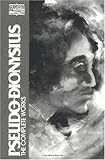Wind and Lightning
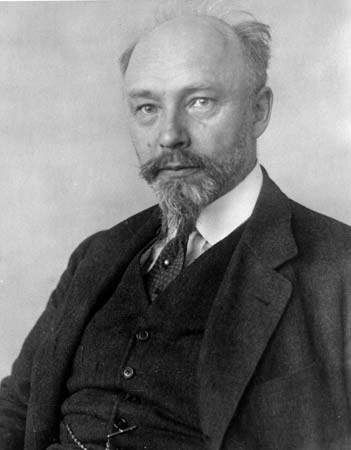
This is something worth thinking about!
“The Chinese, who know more about wisdom than any other race, designate the wise by a combination of the ideographs for wind and lightning.”
(Hermann Keyserling Estonian-born German Philosopher, 1880-1946)
Wisdom, Wind and Lightning

“The Chinese, who know more about wisdom than any other race, designate the wise by a combination of the ideographs for wind and lightning.”
–Hermann Keyserling (Estonian-born German Philosopher, 1880-1946)
Wisdom and Humility
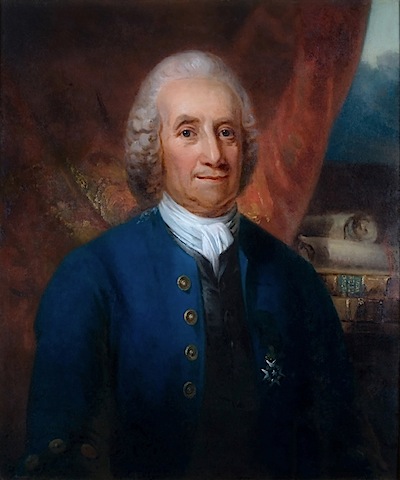
“Genuine wisdom involves humility. The wiser we become, the greater the realization that there is so much more to learn and understand.”
–Emanuel Swedenborg (Swedish Scientist, Mystic and Philosopher, 1688-1772)
Wisdom and Awareness

“We must learn about Wisdom from all things.
As scripture says, ‘Wisdom has made and continues always to adapt everything. It is the cause of the unbreakable accommodation and order of all things and it is forever linking the goals of one set of things with the sources of another and in this fashion it makes a thing of beauty of the unity and the harmony of the whole.”
–Pseudo-Dionysius the Aeropagite (a.k.a. Pseudo-Denys, Anonymous Theologian and Philosopher, Late 5th and Early 6th Century)
Re-Emergence of An Ancient Wisdom
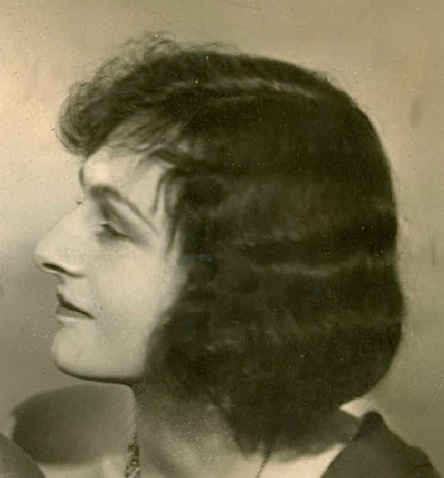
“Everywhere in the world the self-same Ancient Wisdom can be traced…And everywhere in the world at present are the signs of the re-emergence of that Wisdom back into the light of day.”
–Vera Stanley Alder (English Painter and Mystic, 1898-1984)
How Wise People Learn!

“Wise men learn by others’ harms; fools by their own.”
–Benjamin Franklin (American Author, Inventor and Diplomat, 1706-1790)
Humility and Wisdom
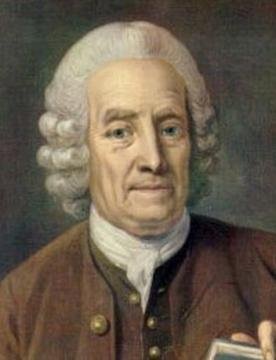
“When you have a humble heart, you will know that wisdom is perceiving that the things in which you are wise are scarcely anything compared with the things in which you are not wise.”
–Emanuel Swedenborg (Swedish Scientist, Mystic and Philosopher, 1688-1772)
An Extraordinary Memoir

Regular readers will know that I am very interested in helping people with posttraumatic stress disorder (PTSD), and you will find a number of articles here.
The problem is growing as more people are returning from the conflicts overseas. But it is also important to return to another point: the difference between categorical and dimensional diagnosis. Few problems fit into neat little boxes. Instead they tend to lie on spectra. At one end you have people who have never had a day’s trouble in their lives, at the other you will find people who have been incapacitated by the most terrible things that have happened to them.
And in between is a huge number of people who do not fit any diagnostic criteria, but nonetheless suffer from many of the signs and symptoms of illness. How many people suffer from some of the symptoms of PTSD because they found a dead relative? Or had an important relationship that went terribly wrong?
They do not, of course, have diagnosable PTSD, but it can sometimes be helpful to reframe their suffering as a reaction to trauma.
I have just reviewed a book on the Amazon website that I hope is read very widely.
The book is called The Dancer Returns: From Victim to Victory, by Susan Lee Titus.
It tells an extraordinary true story about a young businesswoman who is brutally assaulted. She suffered from such severe PTSD that she actually needed to be admitted to hospital for a short time.
She transcends the terrible experience, and she is herself transformed by compassion and forgiveness. She moves on to teach dance to incarcerated women, each of whom carries her own scars.
The book is short but profoundly moving and can be life-changing.
If you have any interest in PTSD in all its manifestations, and also if you are interested in alternative ways of living with and transcending distress, I strongly recommend the book.
Enlightenment
Regular readers will know that I have been collecting wise words from around the globe for many years, and I now have almost 40,000 of them broken down into more than 500 topics. It has taken years not just to collect them, but to try to check the sources and wording. But if you find errors, please let me know!
Here are 23 of my favorites comments about enlightenment.
I do hope that you find them as useful and inspiring as I have.
“One does not become enlightened by imagining figures of light, but by making the darkness conscious.”
–Carl G. Jung (Swiss Psychologist and Psychiatrist, 1875-1961)
“Be a lamp unto your own feet; do not seek outside yourself.”
–Buddha (a.k.a. “The Awakened”, a.k.a. Siddhartha Gautama, Indian Religious Figure and Founder of Buddhism, c.563 B.C.E. – c.483 B.C.E.)
“When the divine vision is attained, all appear equal; and there remains no distinction of good and bad, or of high and low.”
–Sri Ramakrishna (a.k.a. Sri Ramakrishna Paramahansa, Indian Hindu Mystic and Promoter of Universal Religion, 1836-1886)
“We loosely talk of Self-realization, for lack of a better term. But how can one realize or make real that which alone is real? All we need to do is to give up our habit of regarding as real that which is unreal. All religious practices are meant solely to help us do this. When we stop regarding the unreal as real, then reality alone will remain, and we will be that.”
–Ramana Maharshi (Indian Hindu Mystic and Spiritual Teacher, 1879-1950)
“We attain enlightenment when we love truth for the sake of truth, and not for the sake of self-promotion or worldly gain.”
–Emanuel Swedenborg (Swedish Scientist, Mystic and Philosopher, 1688-1772)
“Once and for all, dedicate yourself to the service of a high ideal, to the coming of the kingdom of God, and do not be concerned with what will become of you. This ideal will bring you everything."
–Omraam Mikhaël Aïvanhov (Bulgarian Spiritual Master, 1900-1986)
“The holy instant is the recognition that all minds are in communication. Every thought you would keep hidden shuts off communication.”
–A Course in Miracles (Book of Spiritual Principles Scribed by Dr. Helen Schucman between 1965 and 1975, and First Published in 1976)
“If you are enlightened, you are not free, as some people say, but you are freedom itself. Not like a bird in the sky, but like the sky itself.”
–Wolter A. Keers (Dutch Advaita Teacher and Editor, 1923-1985)
“The reason why so few people find enlightenment is because they have free will and punish themselves by making wrong choices. Constantly, enlightenment is being offered to them, but they refuse to accept it. Therefore they refuse to accept it. Therefore they are being taught problems that are set before them, since they refuse to make choices voluntarily.”
–“Peace Pilgrim” (a.k.a. Mildred Norman, American Peace Activist, 1908-1981)
“All the riches of this world are too less a price for a single word which enlightens the soul.”
–Hazrat Inayat Khan (Founder of the Sufi Order of the West, 1882-1927)
“To the dull mind all nature is leaden. To the enlightened mind the whole world sparkles and burns”
–Ralph Waldo Emerson (American Poet and Essayist, 1803-1882)
“Enlightenment must come little by little, otherwise it would overwhelm.”
–Idries Shah (Afghan-born Sufi Philosopher and Writer, 1924-1996)
“Out of compassion I destroy the darkness of their ignorance. From within them I light the lamp of wisdom and dispel all darkness from their lives.”
–Bhagavad Gita (Ancient and Sacred Sanskrit Poem Incorporated into the Mahabharata)
“If these little sparks of holy fire which I have thus heaped together do not give life to your prepared and already enkindled spirit, yet they will sometimes help to entertain a thought, to actuate a passion, to employ and hallow a fancy.”
–Jeremy Taylor (English Anglican Clergyman, Writer and Bishop, 1613-1667)
“The great beacon light God sets in all, the conscience of each bosom.”
–Robert Browning (English Poet, 1812-1889)
“God reveals himself unfailingly to the thoughtful seeker.”
–Honoré de Balzac (French Novelist, 1799-1850)
“There is no difference between an enlightened man and an ignorant one. What makes the difference is that the one realizes it, while the other is kept in ignorance of it.”
–Hui-Neng (a.k.a. Daikan Eno, Chinese Chan Monk, A.D. 638-713)
“You may have expected that enlightenment would come Zap! Instantaneous and permanent. This is unlikely. After the first "ah ha" experience, it can be thought of as the thinning of a layer of clouds…”
–Ram Dass (a.k.a. Richard Alpert, American Spiritual Teacher, Author and Lecturer, 1931-)
“God realization does not begin in a cave high atop the Himalayas. It begins in the pots and pans of the kitchen. Treat all your tasks, however small, as opportunities to see God and serve him.”
Sri Swami Sivananda (Indian Physician and Spiritual Teacher, 1887-1963)
“Enlightenment is not an attainment: it is a realization. When you wake up, everything changes and nothing changes. If a blind man realizes that he can see, has the world changed?”
–Dan Millman (American Writer, Philosopher and Former World Class Trampolinist, 1947-)
“Enlightenment is the highest good. Once you have it, nobody can take it away from you.”
–Siddharameshwar Maharaj (Indian Spiritual Teacher, 1888-1936)
“Is enlightenment really possible for the average person? Yes. Big Yes. Enlightenment is very possible for the ordinary individual. Actually it is easier than for some one who thinks that they are special…. whenever someone is ordinary, simple, innocent and natural, that is enlightenment.”
–Sri Sri Ravishankar (Indian Spiritual Teacher and Founder of the Art of Living Foundation and the International Association for Human Values, 1956-)
Brain Training and the Paradox of Aging

For centuries, people in cultures throughout the world have believed that increasing age is associated with increasing wisdom. Not just knowledge and experience, but wisdom. Is this an old wives’ tale, or is there something to it?
There is growing evidence that as we age our brains actually become stronger. Everyone missed it, because the emphasis was on memory, concentration and thinking speed, and those may all deteriorate with age. What changes is that as we age we become more efficient at making associations rather than thinking linearly. we also recruit regions of the brain that may have lain dormant for years. At the same time, different types of mental training, including meditation, can improve many aspects of our cognitive abilities, and may also enrich and even grow appropriate regions of the brain.
Some new data from a study being conducted at Wake Forest University Baptist Medical Center in North Carolina suggests that it is possible to use a fitness program for your brain that can improve thinking skills, attention and concentration as reliably as lifting weights can increase muscle strength.
Preliminary findings from the study, which used functional magnetic resonance imaging (fMRI) to record brain activity, were presented last week at the Organization for Human Brain Mapping conference in Chicago.
As we age, we do experience changes in how we perceive the information that our senses gather from the environment. As I mentioned older adults combine information from the different senses more readily than do younger adults. This is known as sensory integration, and the down side is that it can lead to difficulties in blocking out distracting sights and sounds while still maintaining focus on important information. You are probably familiar with the “Cocktail Party Phenomenon.” You are in a loud room, but because someone is saying something interesting, you are able to block out uninteresting information. This technical term for this is cortricofugal inhibition. As we get older it gets more difficult to do the inhibiting.
The Brain Fitness in Older Adults (B-fit) study has been designed to establish whether eight hours of brain exercise can improve the ability of healthy older adults, ages 65 to 75 years, to filter out unwanted sights and sounds.
The B-fit study uses fMRI to visualize blood flow and brain activity to determine how attention training affects brain function. The training involves either a structured one-on-one mental work-out program or a group brain exercise program. During the one-on-one sessions, the volunteers were asked to ignore distracting information and tasks get harder as the eight-week training progresses. For the group sessions, participants learn new information relevant to healthy aging and are then tested on their ability to apply the new information.
All participants had an fMRI scan during a distraction task. They had to look for target words or numbers while ignoring distracting sounds. The scans showed brain activity in areas related to both sight and sound. Follow-up fMRIs showed that in the group receiving the one-on-one training, activity related to sight was increased, while activity related to sound was decreased. In addition, performance on the task was improved.
So the data do indeed suggest that attention training is a way to reduce
older adults’ susceptibility to distracting stimuli and therefore help improve
concentration.
And what about wisdom?
I have written in Healing, Meaning and Purpose that “Wisdom is the integration of understanding:” making more new associations and drawing conclusions based on a new perspective is a gift of aging. The training enables us to make sense of and communicate our conclusions.
When it comes to the brain, use it or lose!

